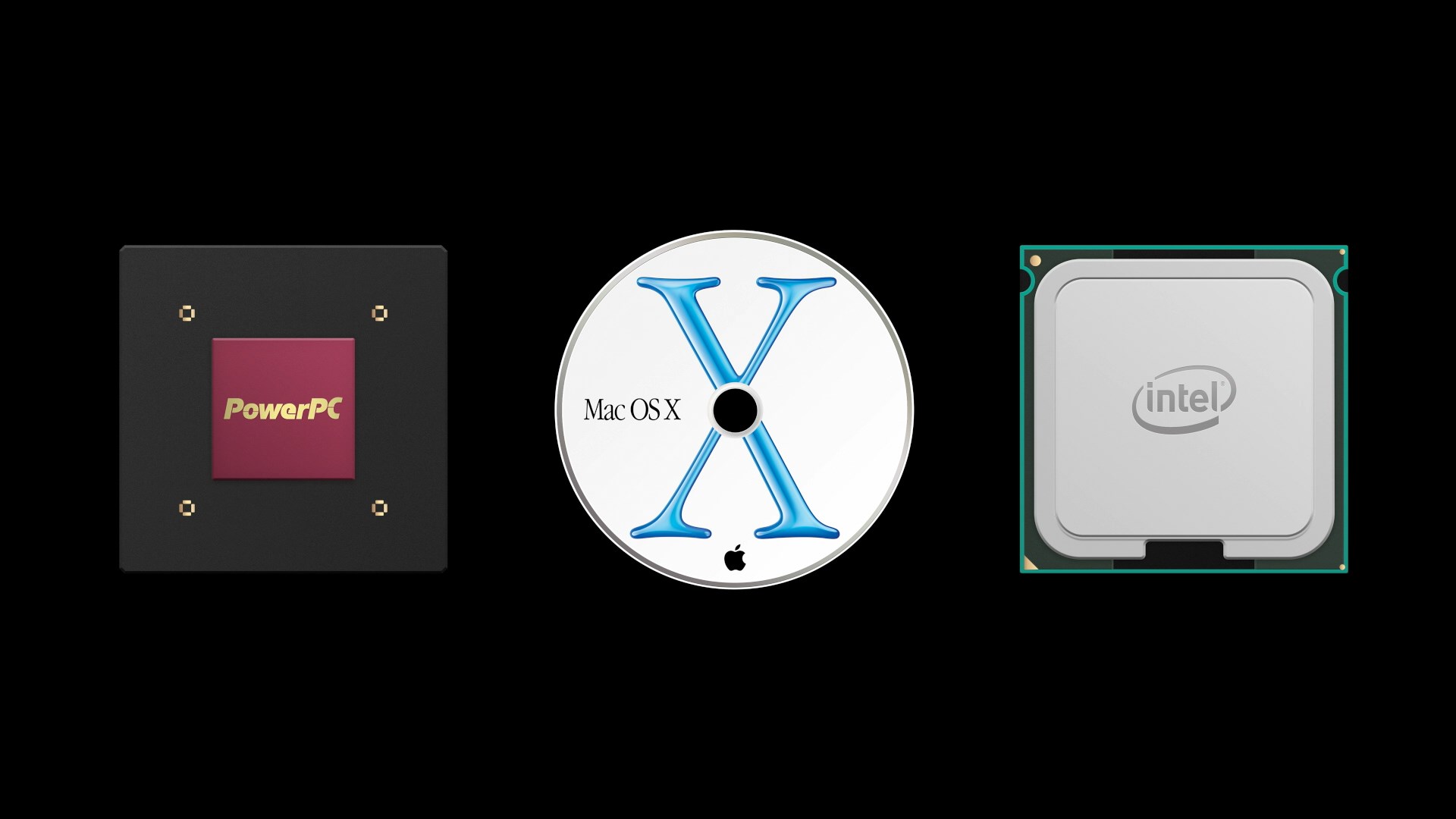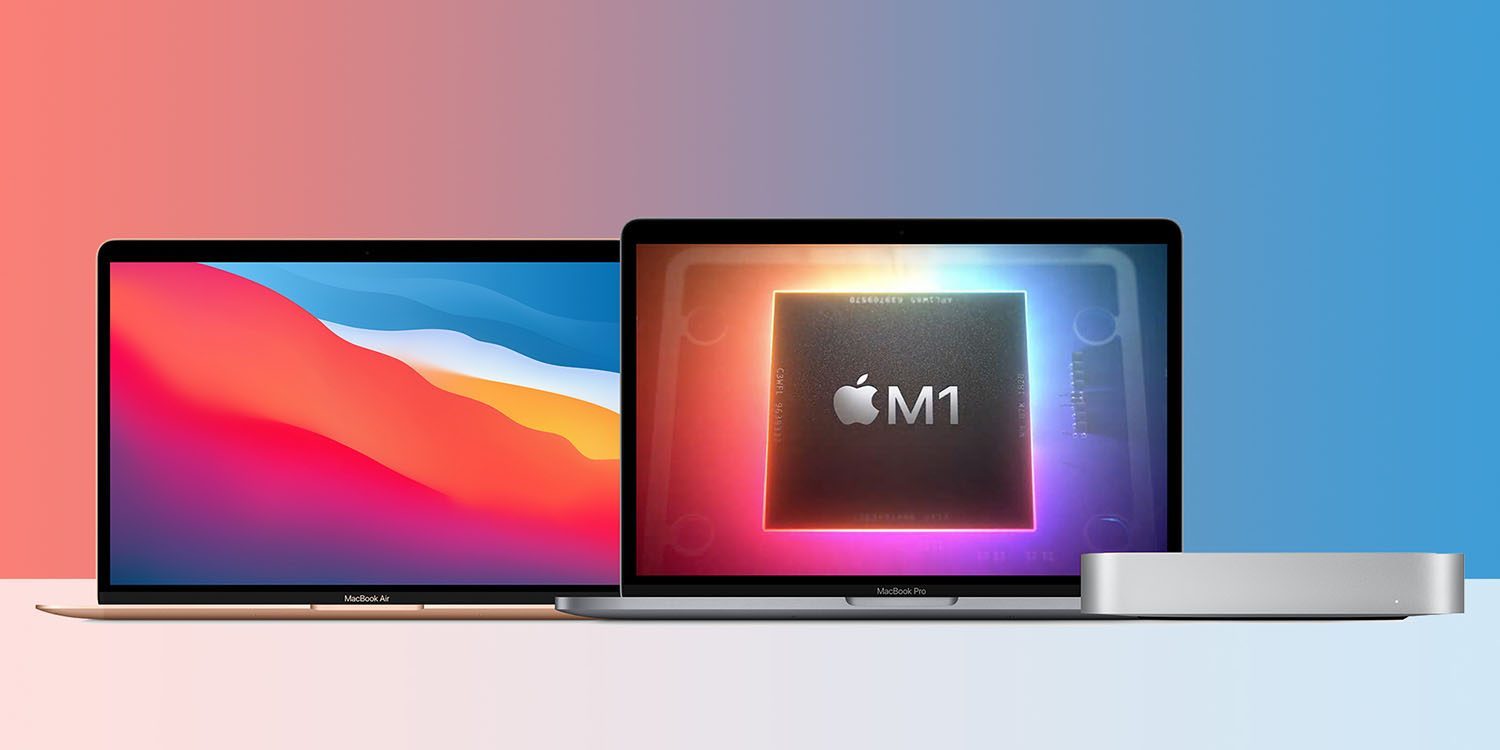
After a very long wait, Apple finally announced a new version of the Mac Pro powered by the M2 Ultra chip. As a result, the transition to Apple Silicon is now complete, and the company no longer sells any Intel Macs. For users, this could mean that it won’t take long before macOS drops support for Intel Macs.
From PowerPC to Intel
First, let’s revisit the past. This is not the first time that Macs have transitioned from one architecture to another. In 2005, Apple announced that it would switch from PowerPC processors to Intel. At the time, Intel had much faster and more efficient processors than PowerPC, which allowed Apple to create more modern computers – such as the first MacBook Air.
Apple said the transition would begin in June 2006 and be finished by the end of 2007. The first Intel Mac was announced in January 2006. However, the transition to Intel was fully completed in August 2006 when the company replaced the PowerMac with the first Intel Mac Pro.

The following year, Apple released Mac OS X Leopard, the last version of the operating system to support PowerPC Macs. In 2009, Mac OS X Snow Leopard officially dropped support for these Macs, becoming the first version to require Intel processors. In short, Apple kept supporting PowerPC Macs for three years after introducing the first Intel Mac.
Apple Silicon Macs
As the years went by, Apple once again felt the need to have more powerful and efficient processors for its computers. This time, the company was already working on its own chips for the iPhone and iPad. In June 2020, Apple confirmed that it was changing the architecture of the Mac, now from Intel to ARM chips, which are called Apple Silicon.
The first Apple Silicon Macs were introduced in November 2020 with the M1 chip, and Apple said the transition would be completed by 2022. However, completing the revamped Mac lineup took a little longer than expected, and that’s because of the Mac Pro.

But now, Apple has finally transitioned the entire lineup of Macs to Apple Silicon chips. The 2019 Mac Pro with Intel processor is no longer available in stores (at least officially). So how much longer will Apple keep providing macOS updates for Intel Macs?
macOS Sonoma
In addition to the new Mac Pro, Apple also announced macOS Sonoma at WWDC 2023 earlier this week. The update doesn’t bring any significant changes, except for some improvements to FaceTime, interactive widgets on the desktop, and a new API for porting Windows games to the Mac. But even so, Apple has dropped support for some Intel Macs with the update.
For instance, none of the iconic 12-inch MacBooks can run the new version of macOS. The 2017 MacBook Pro won’t get the update either. When it comes to the iMac, while the 2017 iMac was the oldest supported model on macOS Ventura, the update to macOS Sonoma requires the 2019 iMac or newer.
Right now, these are the Intel Macs supported by the latest version of macOS:
- 2017 iMac Pro
- 2018 Mac mini
- 2018 MacBook Air
- 2018 MacBook Pro
- 2019 MacBook Air
- 2019 MacBook Pro
- 2019 iMac
- 2019 Mac Pro
- 2020 MacBook Air
- 2020 MacBook Pro
- 2020 iMac

The future of macOS updates for Intel Macs
Only Apple knows for sure what the roadmap is for macOS updates. However, if I had to take a guess, I’d say that the next major release of macOS to be announced in 2024 may be the last one for Intel Macs.
It’s been almost three years since M1 was introduced, and by the time macOS 15 is released to the public in 2024, it will have been four years. Personally, I speculate that macOS 15 will drop support for the 2017 iMac Pro, the 2018 Macs, and most 2019 Macs. If so, Apple would give an extra year of updates to those who bought an Intel Mac in 2020 (and the 2019 Mac Pro).
Top comment by Andersen Silva
My 2019 MacBook Pro (16-inch) is a beast that's still quite adept at handling anything I throw at it. Unless Sonoma brings performance or software compatibility issues, I have no plans to replace my Intel MBP with an Apple silicon one before macOS 15.
Even Intel Macs supported by macOS Sonoma struggle with the lack of some important features, such as Presenter Overlay on FaceTime, 3D Reactions, and Game Mode. These Macs also don’t support some features of macOS Ventura that rely on the Neural Engine in Apple Silicon chips, such as Live Captions.
Wrap up

Of course, even when these Macs no longer get new versions of macOS, I’m sure Apple will maintain basic support with security patches for at least another two years for these machines. After all, they still work quite well for some tasks.
But at the same time, getting rid of Intel Macs should allow Apple to invest in even more features that take advantage of Apple Silicon architecture.
Do you still own an Intel Mac? Are you planning to upgrade to an Apple Silicon Mac soon? Let us know in the comments section below.
FTC: We use income earning auto affiliate links. More.





Comments